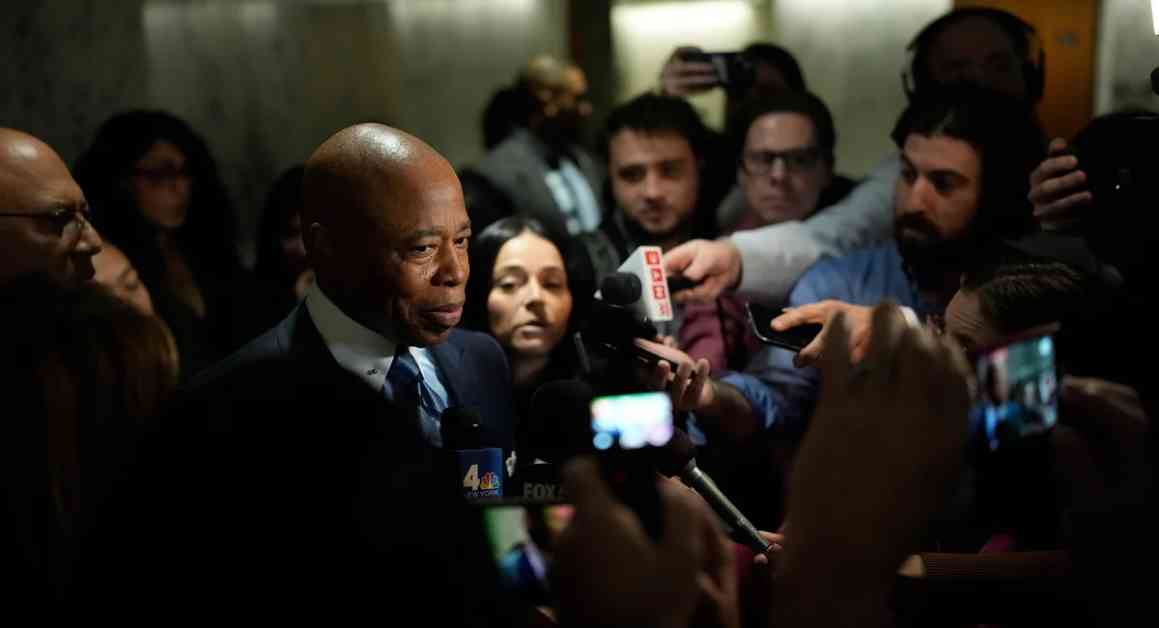Mayor Eric Adams of New York City caused a stir on Wednesday when he revealed to reporters that he had undergone anesthesia for a procedure, leaving many questioning his transparency and the delegation of his powers. The 64-year-old mayor confessed during his weekly City Hall press conference that the experience had left him concerned. His admission followed a period of seclusion at Gracie Mansion the previous week, during which his spokesperson had cited him as not being in the best health. However, it was later disclosed that the procedure in question, a routine colonoscopy, had actually taken place over a month ago on January 3.
### Concerns Over Transparency and Leadership
Kayla Mamelak, the mayor’s press secretary, shed light on the situation by explaining that following the colonoscopy, Adams’ physician recommended further tests, including an MRI and bloodwork, along with a period of rest. These subsequent tests were the reason behind the mayor’s absence from the public eye last week. While Adams has been forthcoming about his previous health issues, he has been reticent about his recent medical matters, leading to speculation about his ability to fulfill his duties and who would assume control in his absence.
Adams mentioned that he had informed his chief of staff, Camille Joseph Varlack, and his first deputy mayor, Maria Torres-Springer, about the anesthesia. According to the city charter, the public advocate would step in as acting mayor if the incumbent mayor was unable to perform his functions. However, past mayors, including Adams, have issued executive orders designating their first deputies to take over temporarily in cases of illness or other incapacitating circumstances.
### Expert Opinions and Historical Precedents
Richard Briffault, a professor at Columbia Law School specializing in city governance and public integrity, remarked that having the first deputy mayor assume control temporarily was a logical choice. Conversely, the city’s public advocate, Jumaane Williams, criticized Adams for failing to notify his office about the planned procedure requiring anesthesia, citing concerns over the mayor’s adherence to city regulations.
Historically, New York City mayors have taken varying approaches to disclosing their health issues and medical treatments. Mayor Bill de Blasio announced his hernia surgery in 2015, deeming it a minor outpatient procedure. Similarly, Mayor Rudy Giuliani made his prostate cancer treatment public knowledge in 2000. On the other hand, Mayor Michael Bloomberg was known for keeping his medical procedures private, often traveling without disclosing his whereabouts on weekends.
Joseph Viteritti, a professor of public policy at Hunter College, expressed skepticism about Adams’ lack of transparency regarding his health, highlighting its potential impact on his credibility and public image, especially in the midst of ongoing investigations. Viteritti emphasized the importance of maintaining trust and openness with the public, particularly for public officials facing scrutiny.
In conclusion, Mayor Adams’ recent revelations about his health and the subsequent confusion surrounding his delegation of power have raised pertinent questions about transparency, leadership, and adherence to regulations. While previous mayors have taken different approaches to handling their health matters, the current situation underscores the significance of maintaining open communication and accountability in public office, especially in times of uncertainty and public scrutiny.












